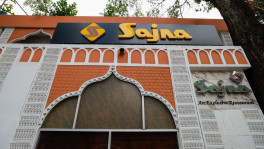Islamic State 'Beatles' cell member convicted in US of beheading hostages
After a six-week trial and four hours of deliberations, a federal jury in Alexandria, Virginia, found El Shafee Elsheikh, 33, guilty on charges including lethal hostage-taking and conspiracy to commit murder

A US jury on Thursday convicted a former British citizen for his role in a notorious Islamic State hostage-taking plot that led to the beheading of American journalists and aid workers.
After a six-week trial and four hours of deliberations, a federal jury in Alexandria, Virginia, found El Shafee Elsheikh, 33, guilty on charges including lethal hostage-taking and conspiracy to commit murder.
In convicting Elsheikh, the jury concluded that he was part of an Islamic State terrorist cell, nicknamed "The Beatles" for their British accents, that beheaded American hostages in Iraq and Syria.
Some former hostages, released by the "Beatles" after protracted negotiations, testified during the trial about the torture they endured.Family members of the deceased victims also testified.
The charges against Elsheikh, whose British citizenship was withdrawn in 2018, carry a potential death sentence, but US prosecutors have advised British officials that they will not seek the death penalty.
Elsheikh, who was born in Sudan and raised in London, was accused of conspiring to kill four American hostages: James Foley, Steven Sotloff, Peter Kassig and Kayla Mueller. Foley and Sotloff, both journalists, and Kassig, an aid worker, were killed in videotaped beheadings. Mueller was raped repeatedly by the group's leader, Abu Bakr al-Baghdadi, before her death in Syria, US officials have said.
Another of the cell's members, Alexanda Kotey, was held in Iraq by the US military before being flown to the United States to face trial. Kotey pleaded guilty last September to the murders of Foley, Sotloff, Mueller and Kassig.
During opening arguments in the US trial, Elsheikh's lawyer Ed MacMahon called him a "simple ISIS fighter" and tried to cast doubt on whether he was one of the "Beatles." The captors wore masks and had similar accents, making it difficult for hostages to identify them, he said.
"It was horrific and senseless. None of that is in dispute," MacMahon said. "What is in dispute — and what you must decide — is whether Mr. Elsheikh bears any legal responsibility."


 Keep updated, follow The Business Standard's Google news channel
Keep updated, follow The Business Standard's Google news channel
















